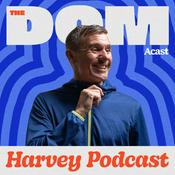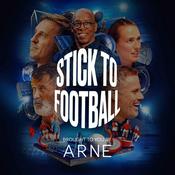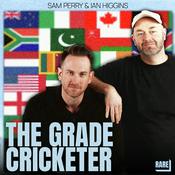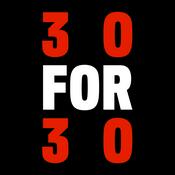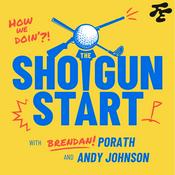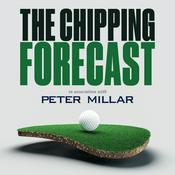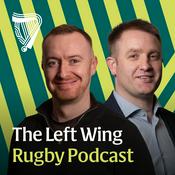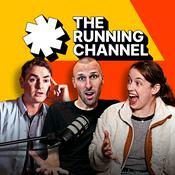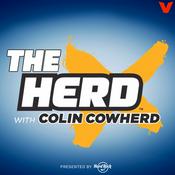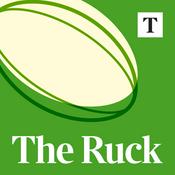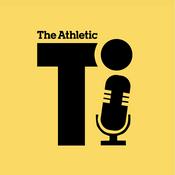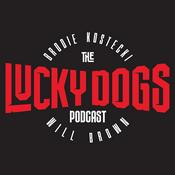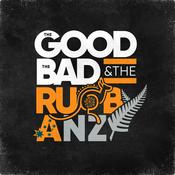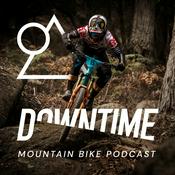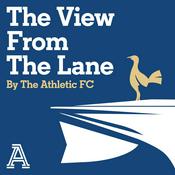301 episodes
No Sports Advantage for Trans Women? / Khelif Defiant but in Denial / Bol's 800m debut
13/2/2026 | 1h 2 mins.The conversation continues on Discourse, for our Science of Sport Supporters. Join now with a small monthly pledge for access to the best sports science discussion community around
In the Spotlight this week, we revisit a recurring theme to explore whether a paper claiming no advantage for males who identify as women has any validity, and we cover some news from the world of sport and health.
17:31 Our main focus is on a systematic review, published last week, claiming that evidence suggests no physical differences and thus no sporting advantages in trans identified males. We explain why the paper is misleading, and how the authors and journal ignored very obvious flaws in the research to arrive at their concussion.
1:31 We also discuss an interview given by Imane Khelif in which the Algerian boxer confirms what was already widely known about male advantage, as well as some surprising details about suppressing testosterone, and defiance and denial about male advantage.
36:44 In sports action, Femke Bol made an 800m debut indoors - we discuss the performance and what it tells us of her ceiling.
43:20 Serena Williams is making a return, but appeared in a Superbowl halftime advertisement to promote ozempic for weight loss, which triggered a wave of criticism and fear about the displacement of exercise, diet and responsibillty for weight loss. We consider the arguments.
50:52 Continuous glucose monitors are in the spotlight, after a range were recalled for providing inaccurate data, which has lead to death and injury in people misled by dodgy data. We discuss the matter in the context of how wearables have to, at a minimum, provide accurate information when decision making will change on the basis of that information.
And finally, a Lance Armstrong movie is imminent, and Hollie Davidson referees a Six Nations match at the weekend. We end with brief thoughts.
Links
The systematic review on transgender women
A previous systematic review, minus the meta-analysis, that reaches the opposite conclusion by focusing on non cross-sectional research
The Imane Khelif interview
The Serena Superbowl Advert
Story on the recall of continuous glucose monitors
Hollie Davidson interview ahead of her Six Nations debut this weekend
Hosted on Acast. See acast.com/privacy for more information.Winter Olympic Spotlight: Vonn('s gate) and risk / Cross Country Klaebo / Speed Skating Unfairness / Penis-gate
11/2/2026 | 53 mins.Become a Science of Sport Supporter, and get access to our Discourse chat community, and to our upcoming Real Science of Sport Live Chats. A small monthly pledge or donation on Patreon is all it takes
The opening five days of the Milan Cortina Winter Games have produced some spectacular performances and notable talking points. The Spotlight reveals some insights on those performances. We ask whether Lindsay Vonn's decision to race only 9 days after a ruptured ACL was a justifiable, correct one? Gareth has a new favourite sport - Cross-country skiing, dominated in spectacular fashion by Johannes Hofslot Klaebo and Sweden's women. Gareth is less enamoured with figure skating, but we discuss subjective sports and how coverage has improved to offer insights on scoring, and where it can continue to advance. We commend the coverage and footage from the Games, with revolutionary, spectacular drone footage. Speed skating is also in the Spotlight, and we share some insights that have been missing from the coverage, related to pacing. We also discover that some researchers suggest that the lane allocation offers significant advantages in some events.
And finally, we end on 'penis-gate', the story (or is that a non-story) about the search for ski-jumping distance through the most literal application of 'marginal gains' you can imagine.
That, and more, in the first of our Winter Olympic Spotlight shows.
Links
The story of ski jumpers injecting acid into their genitals for jumping gains
The Guardian's coverage of Lindsay Vonn's dramatic downhill
Our supporters weigh in on Vonn's decision to race, with some insightful comments and questions (supporters only - pledge above for access!)
Hosted on Acast. See acast.com/privacy for more information.- Professor Florentina 'Fleur' Hettinga loves speed skating. Not only has she competed as an athlete in the discipline, but she has also researched many elements of the sport, from the physiology of the top athletes to the technical expertise and equipment needed to be among the best. Based in Amsterdam, Hettinga is at the centre of Dutch speed skating excellence, serving as Head of Department of Human Movement Sciences at the Vrije Universiteit and as a professor at the Faculty of Behavioural and Movement Sciences. Hettinga talks Mike and Ross through the fascinating equipment used in modern speed skating, the technical skills that need to be honed to be competitive, and the unique, non-event-specific training that many of the top speed skaters employ. If you're watching the 2026 Milano Cortina Olympic Games, start here.
SHOW NOTES:
Fleur Hettinga’s research profile
The training insights of Nils van der Poel
Hosted on Acast. See acast.com/privacy for more information. A VO2max of 101: Fantastical Physiology? / Australian Open Wrap / Contact Sport Dilemmas
06/2/2026 | 1h 20 mins.Show Notes
On the Spotlight this week, we wrap up the Australian Open where dramatic semi finals saw Alcaraz overcome cramp (to Zverev's dismay), Djokovic overcome Sinner (to Ross' prediction dismay), and then Alcaraz overpower Djokovic to win a career Grand Slam. Elana Rybakina won the women's title, powered by a dominant serve and a few harsh, but helpful words from her coach.
Then it's a concussion and head injury discussion, with a Spotlight on football and rugby. Should young children be tackling and heading a football? We explore those debates and discover that bans and delays don't play out quite the same way in the two sports, but that many unanswered questions remain. A recent paper by Ross and some colleagues finds that rugby players wearing headgear are more likely to suffer injuries than those not wearing headgear. An odd finding, but confounded by history and bias, as a lesson for how research limitations play out.
And finally, does Karsten Blummenfelt really have a VO2max of 101 ml/kg/min? The Norwegian triathlete published that number earlier in the week, and it was met with skepticism bordering on ridicule. We discuss why the number isn't physiologically believable, what it means, and how errors in measurement might occur.
Finally finally, if you enjoy the show and want to show your support, then become a Supporter with a small monthly donation, and you'll also get access to our Community Chat, and, as discussed in this show, upcoming Live Event Coverage.
Links
The Contact Conundrum: Are We Introducing Contact at the Correct Time in Youth Sports?
Wearing Regulation Soft-Padded Headgear Does Not Reduce the Risk of Head Injuries in Professional Men's Rugby Players: An Observational Cohort Study
The Spennymoor Heading Trial Article
Article on Blummenfelts 101 VO2max
Hosted on Acast. See acast.com/privacy for more information.WINTER OLYMPIC SPECIAL: An Insiders Guide to Cross Country Skiing and Biathlon
04/2/2026 | 1h 32 mins.Norwegian Oyvind Sandbakk is a specialist in the brutally tough world of cross-country skiing and biathlon. He is Sports Director at the Norwegian School of Elite Sports and a Professor II at the School of Sport Science at the UiT The Artic University of Norway. A former World Cup cross-country skier himself, Oyvind has worked with many of Norway's top athletes in Nordic sports. We delve into the technical details of both disciplines (including the dark art of waxing!), the gear involved in both sports, the physiology required to be one of the best in the world and what to watch for at the 2026 Winter Olympics.
Show notes
The article referred to in the show about the importance of waxing, and the number of skis the athletes have
Here is Oyvind's research profile page with his university
Hosted on Acast. See acast.com/privacy for more information.
More Sports podcasts
Trending Sports podcasts
About The Real Science of Sport Podcast
World-renowned sports scientist Professor Ross Tucker and veteran sports journalist Mike Finch break down the myths, practices and controversies from the world of sport. From athletics to rugby, soccer, cycling and more, the two delve into the most recent research, unearth lessons from the pros and host exclusive interviews with some of the world's leading sporting experts. For those who love sport. Hosted on Acast. See acast.com/privacy for more information.
Podcast websiteListen to The Real Science of Sport Podcast, The Zach Lowe Show and many other podcasts from around the world with the radio.net app
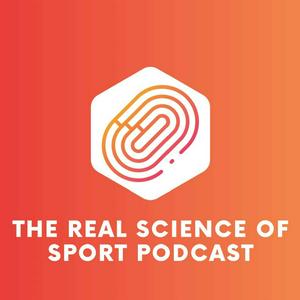
Get the free radio.net app
- Stations and podcasts to bookmark
- Stream via Wi-Fi or Bluetooth
- Supports Carplay & Android Auto
- Many other app features
Get the free radio.net app
- Stations and podcasts to bookmark
- Stream via Wi-Fi or Bluetooth
- Supports Carplay & Android Auto
- Many other app features


The Real Science of Sport Podcast
Scan code,
download the app,
start listening.
download the app,
start listening.


